Picture
Your Present Location: HOME> PictureDialogue between US Former Under Secretary and RDCY held in Beijing
On November 19th, Robert D. Hormats, former US Under Secretary of State and Vice Chairman of Kissinger Associates, with Wang Zhiwen, the president of China Chamber of International Commerce, and more than 20 enterprise CEOs paid a visit to Chongyang Institute for Financial Studies at Renmin University of China(RDCY), having an honest and in-depth exchange on China-US trade friction, intellectual property cooperation and some else hot issues with Wang Wen, the Executive Dean of RDCY, and experts from different fields of China.
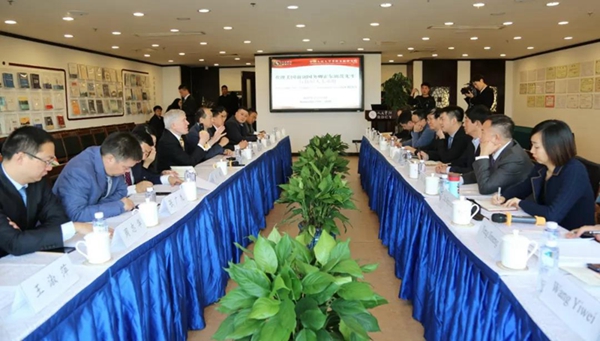
Robert D. Hormats firstly expressed his gratitude for RDCY’s warm welcome and elaborated dialogue environment. He said that this period is very critical for China-US relations. In 1970s, both Chinese and American leaders had strong political willingness to normalize the bilateral ties. In 1980s, China and the US were dedicated to build much closer economic relations. Since restoring legitimate seat in the IMF in 1980, China has become a member of global economic order.
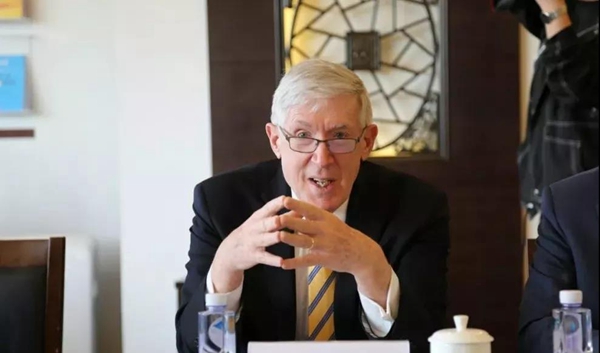
Hormats noted that Chinese and American economies have been increasingly interdependent with each other in the past ten years. American motivation to promote the process was based on the Washington Consensus, in which Americans thought China would change internally and become a market-oriented society with China’s further integrating into the global economic system, and the international institutions would as well modernize themselves. However, China has been remaining the Chinese characteristics in the process of reform and opening-up. Besides, the WTO didn’t make changes and become more efficient, and develop useful norms to respond to new issues such as intellectual property protection in the digital economic era.
Hormats mentioned that American company has been consistently in favor of cooperating with Chinese company. Nevertheless, some American businessmen are increasingly aware that China has become a strongly competitive economy. They are shocked at the development of China. Therefore, what concerns the US enterprises is not present but future.
Hormats pointed out that the biggest problem that China and the US face is that there exist huge differences and misunderstandings on rules and norms. China and the US have been doing what they believe respectively in the correct manner and both sides haven’t had effective dialogues on these issues. He believes that the US cannot suppress China’s development and contain China in the Cold War mentality as China is not the same country it was four decades ago, nor is the world the same place. The US needs to come up with a brand new method to get along with China. China and the US as well need tight cooperation to keep the global economic system well-functioning.
Hormats noted that China-US relations are at a crossroads. Although the US President Trump said trade war can be easily winnable, there is no winner in the trade war when we review history. Thus, he provided some suggestions. First, China and the US should take active measures together on intellectual property protection. Second, both sides should figure out some mutual rules and norms. Third, both sides should strengthen dialogue and cooperation in the financial sector. At last, both sides should foster the cooperation in medical and pharmaceutical field.
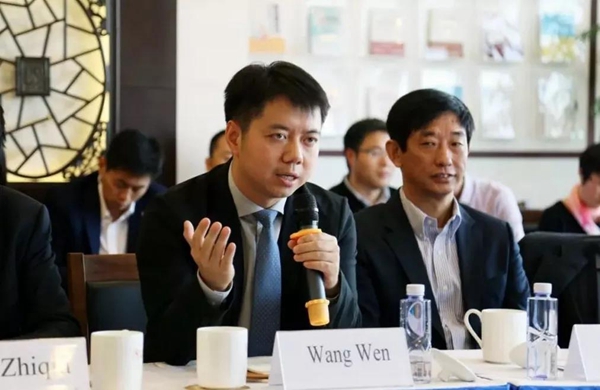
Wang Wen argues that China still needs to learn from the US in science and technology, and the US overrates China’s developing speed in science and technology. Only both sides cooperate with one another can solve the problems the world faces at present. He said that trade friction aroused concerns in China and the US, and how to solve this problem is the core issue in this dialogue.
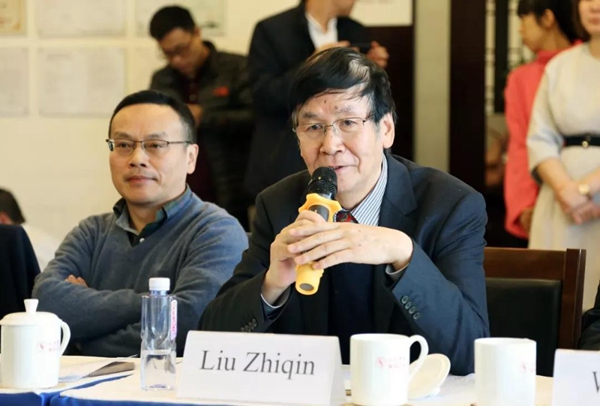
Liu Zhiqin, a senior fellow at RDCY, said that the contradictions between China and the US in fact is a response of chronic and common disease. However, some American politicians deliberately exaggerate these contradictions. Chinese culture is very inclusive. And it is Chinese inclusive culture that helps China absorb advantages from all sides and develop rapidly. In contrast, the US is unaccustomed to accept other countries’ strengths. As a matter of fact, China doesn’t aim to override all other nations and take a lead in the world.
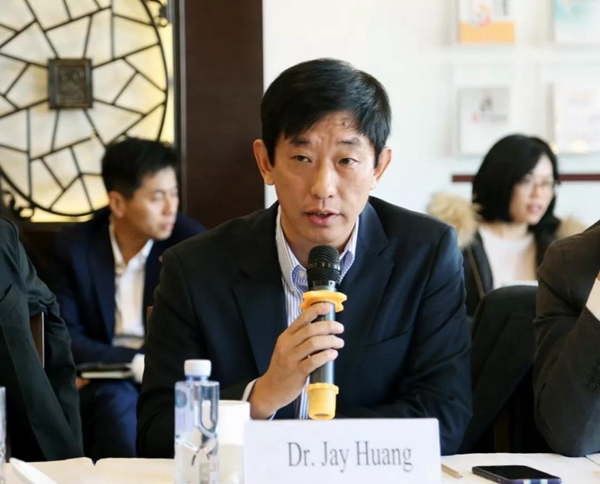
Huang Jie, former Managing Director of Intel Corporation in China, highlighted that in fact the US overrates China’s developing level in science and technology. And he asked Mr. Hormats three questions. First, can China and the US reach some agreements at the forthcoming G20 Summit? Second, concerning the future development of Sino-US relation, someone think that there cannot appear trade cold war or other forms of cold war as Chinese and American economies are closely interdependent while someone argue that China and the US are decoupling. So will the decoupling between China and the US happen? Third, under such circumstance that the US almost cut off every possible path for China to acquire intellectual property legally, how can China obtain intellectual property legally?
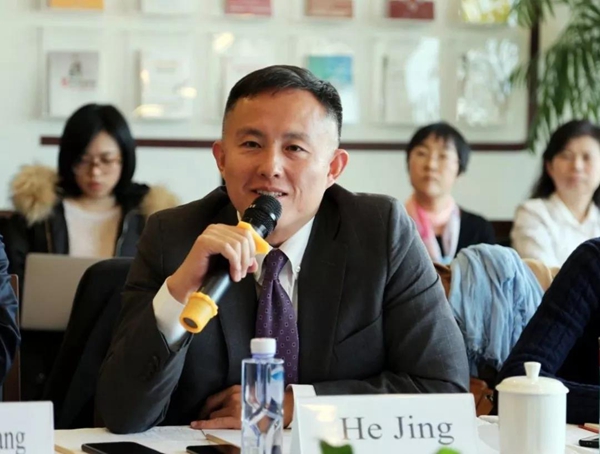
He Jing, partner of Anjie Law Office, noted that China can indeed make some efforts in intellectual property protection, such as establishing state-level institutions of intellectual property protection. China currently has established intellectual property court in some cities, which should be developed into international intellectual property court in the future.
Hormats responded that what America worries is that Chinese enterprises compel American enterprises to transfer technology through purchase and merger. And in the long run, the hawkish in Washington have long insisted on the viewpoint that once China acquires the intellectual property, it will not only be used for business, but also military purposes, especially artificial intelligence. Therefore, intellectual property transforms from commercial issue into a secure one. This issue is very difficult to negotiate.
About G20, it will be very bad if both sides reach no agreement and it will be much worse if both sides open the divergences. About intellectual property protection, both sides should take work-group level meeting to negotiate the concrete issues. And both sides must avoid protectionism on investment issue.
Decoupling is indeed some American politicians’ perspective. The fact is that high-tech development needs a very long-term cycle, China and the US cannot decouple as easy as speaking because global supply chains can not be redistributed overnight. But some Americans truly think like this. Now this is not economic issue, but the economic nationalist trend.
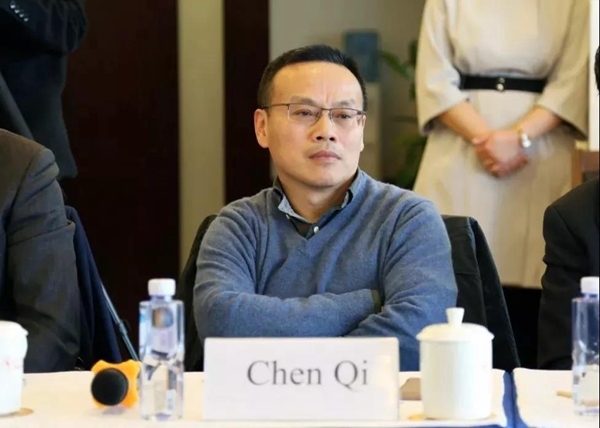
Chen Qi, Director of Tsinghua Center for US-China Relation, said that the foundation of China-US relation is mutual interests rather than ideology. He asked that how to prevent the influence of trade friction from overflowing to other fields.
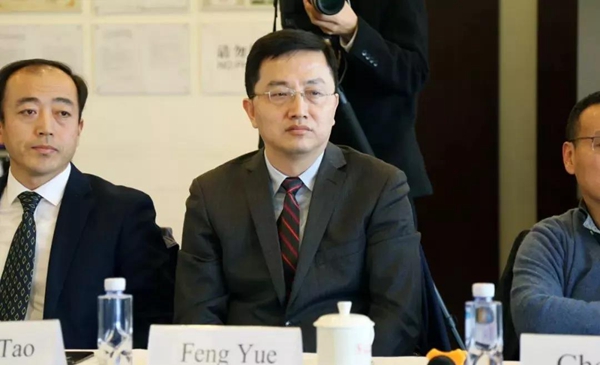
Feng Yue, an researcher at Politics Institute of Chinese Academy of Social Sciences, asked two questions. How does President Trump regard yellow people? Why is this situation happening between China and the US?
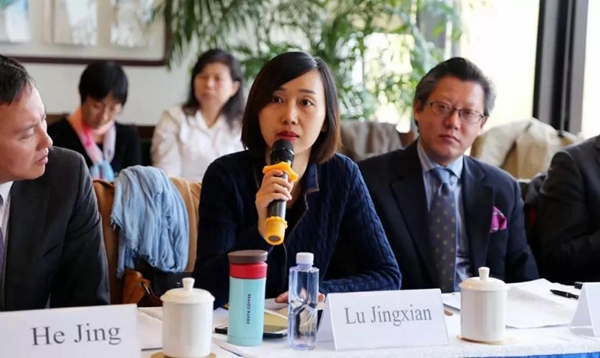
Lu Jingxian, deputy chief editor of English version of Global Times, mentioned that joint research is rather difficult because the US has taken measures to constrain scholars’ exchanges. And what can China do to alleviate American China-phobia?
Hormats responded that it’s hard to predict that what would happen when the two heads of states meet at G20. What worries him is that President Trump would claim they had a good talk but no agreement was reached.
Hormats thinks that racial problem is not targeting at China but some of Trump’s supporters insist on nationalism and be hostile to anyone different from themselves. This emotion is also imposed on African-American and Jew-American.
Hormats said that even if the Americans who are most negative about China have not seen China from an ideological perspective, and no one regards China as the former Soviet Union. Americans have long insisted that only democratic system can bring prosperity, but China has become a counter example. The Chinese government has shown a better side than the US government in certain aspects such as emergency, disaster relief, etc. This has largely affected the perception of Americans and they need to take time to think about. Mr. Hormats added that he doesn't think this is an ideological disagreement. This is just an argument about which way of governance is better.
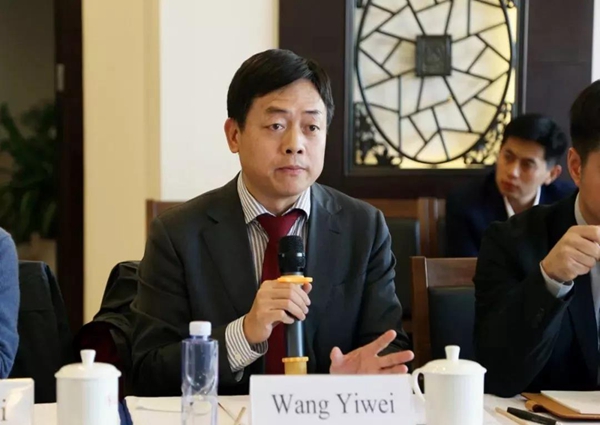
Wang Yiwei, professor of School of International Studies at Renmin University of China and senior research fellow of RDCY, said that China has actually learned a lot from the United States, not completely copying it, but successfully localizing it. For example, the "Chinese Dream" actually refers to the "American Dream." Why has China benefited from almost all the crises in the past? Do you think that China will still benefit from the crisis?
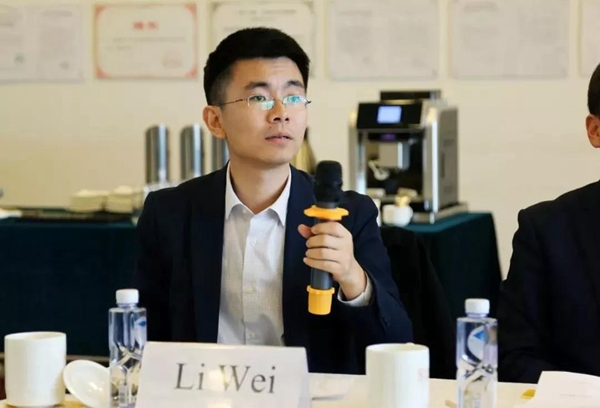
Li Wei, professor of School of International Studies at Renmin University of China and senior research fellow, asked three questions: How do you regard the large-scale tax cuts that the Trump administration is doing? And what are the positive and negative effects of this policy on the United States? Do you think that the current rapid growth of the Chinese economy will continue next year?
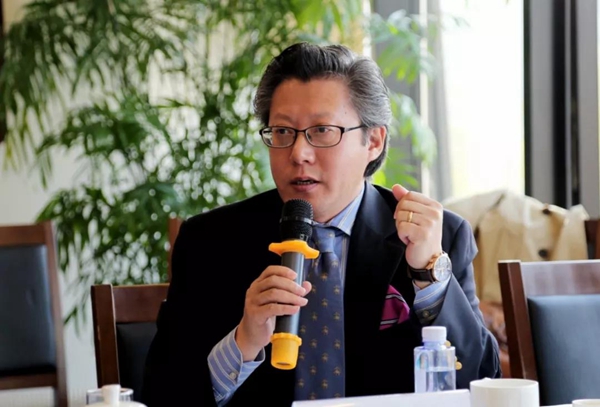
Teng Jimeng, English Consultant of RDCY, asked two question. To what extent can former US government officials contribute to mitigate the current strained relations and promoting cooperation between China and the United States? How can both sides avoid the deterioration of bilateral relations, especially during the Trump administration?
Hormats responded that China's strength in innovation is that China can learn very quickly and catch up with and even transcend other nations in a much shorter time. American companies value the Chinese market and want to participate in innovation and research, but they are also worried about the safety of their technology.
Regarding the Trump tax cuts, the problem is that, according to the current development momentum of the US economy, there is no need to reduce taxes, and tax cuts have no significant effect on promoting economic growth in the future. It is only make people happy in a short time.
About the retired officials, he said that former government officials in China and the United States should strengthen dialogue and exchange and perhaps someone has influence over the present government. In addition, exchanges should be strengthened between officials at all levels such as governors and mayors, which will help to improve mutual understanding at the local level.
In the end, Wang Shuping, dean of the Dunhuang Zhengjue Sutra Writing School, presented Mr. Hormats with a long scroll of the Diamond Sutra, which was more than 100 meters long and engraved with more than a thousand signets. It is reported that the long scroll is the longest engraved Diamond Sutra in the world.
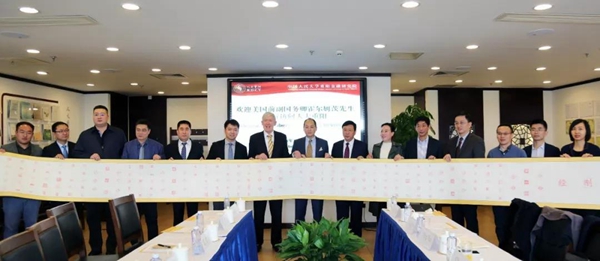
The enterprise representatives participating in this exchange included Wu Qiang, Chairman of Shanxi Energy Transportation Investment Co., Ltd., Yu Xidong, General Manager of Shanxi Energy Transportation Investment Co., Ltd., Lv Zhiyong, Poly Group, and Zhang Guanglong, President of Huamao Jintai (Beijing) Investment Management Co., Ltd., Yu Jiaming, partner of Meiying Capital, Zhou Zhonghua, President of Chongqing Business Media Group Co., Ltd., Wang Shuping, Dean of Dunhuang Zhengjue Sutra Writing School, Chen Haoqiang, General Manager of Beijing Oriental Huading Culture Communication Co., Ltd.. Yang Qingqing, assistant to the dean and researchers of RDCY attended the meeting.























































































 京公网安备 11010802037854号
京公网安备 11010802037854号





